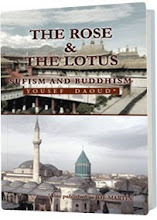
Political comment: Joe Martin
Iran’s form of Islamic government is in free-fall, morally, ideologically and structurally. While for decades there was lack of clarity and actual disagreement as to whether the idea of an Islamic Republic was one of semi-democracy guided by religious principles, or authoritarian rule by state religion, the definition has become more stark. Former supporters of the revolution who are influential clerics turned against it in recent years. These include the late Grand Ayatollah Montazeri, the highest authority in religious matters in Shia Islam, and former President Khatami, especially after the substantiated fraud in the last elections. The extent of the fraud was ignored and even whitewashed by a Majlis, or parliament. That Majlis, is one in which the elected members had to be approved by the government. After the days of Khatami’s presidency, thousands of candidates were excluded by the Guidance Council due to their ideological impurity.
Now 4,000 people who were among the millions who have protested the imposition of a President (who comes across as a fanatic ideologue) by the groups supporting the unelected Supreme Leader, Ayatollah Khamenei, have been arrested and have been, or will be, placed on trial. The trials continue, despite disclosures that numbers of those were arrested were tortured, and both men and women often raped under the eyes of or with the participation of either the Revolutionary Guard and the governments militias designed to facilitate mob rule, in classic “Brown Shirt” fashion. These disclosures came from opposition clerics.
Today comes the news that two young men have been hanged, and the media and government spokesmen have been unable to identify what they were hanged for. There seems to be no indicator that there was even an attempt to prove they had committed violent crimes. Reza Ali Zamani, 37, and Arash Rahmanipour, 20, “who had been convicted of being enemies of God and plotting to topple the Islamic regime” according to the official Iranian Student Broadcasting Agency (CNN.com, Jan. 30 2010). According to his lawyer, Rahmanipour was both sentenced and hanged without any notification of his family, who saw the hanging on the daily news. Thus, in classic totalitarian fashion, the government seeks to torture the families too. This method causes the aguish and terror to spread in concentric circles in society like a boulder dropped into the water.
This case is the tip of the iceberg, and seems to reveal how “justice” is being meted out. Rahmanipour’s lawyer has also revealed that the judicial authorities brought his pregnant sister before him, who had been imprisoned, and told him that in exchange for her release he would have to say what he was asked to say at his televised confession.
The fact of the matter is we do not know how many have been executed, and we have only the government’s official figures for how many demonstrators have been killed in the streets or in prison. These show trials employ the methods of the worst of 20th century totalitarianism like those of Stalinist Communism, an ideology the Iranian government has claimed to revile.
Here is another crime deemed worthy of the death penalty: As of this writing five of the hundreds of defendants, three men and two women, are charged with "moharebeh," or defying God which merits the death penalty, according to the ISNA.
These all too human ruling groups who want to destroy their enemies to maintain their power in a military dictatorship, have committed a rather clear form of hubris in saying that defying a their government is the same as defying God. In doing so they cannot but further tarnish dirty the reputation of their government, which would be better advised to open a dialogue with their critics and negotiate, rather than exterminating them. If the foundation of law of the Islamic Republic was supposed to be the Qur’an and the traditions that were handed down by the founder (hadith), surely on cannot ignore the clear pronouncement: “To kill a single human being is like destroying a world.” On that basis the violators of “moharebeh” would not be these innocents at all, but those who order their executions – with no reason proven or given. Therefore what we have is not an Islamic Republic, or a Republic of any kind. It is not even a government. It is the Inquisition, which overrules government: like the one that terrorized Europe for hundreds of years: this time in Islamic garb.
Iran’s form of Islamic government is in free-fall, morally, ideologically and structurally. While for decades there was lack of clarity and actual disagreement as to whether the idea of an Islamic Republic was one of semi-democracy guided by religious principles, or authoritarian rule by state religion, the definition has become more stark. Former supporters of the revolution who are influential clerics turned against it in recent years. These include the late Grand Ayatollah Montazeri, the highest authority in religious matters in Shia Islam, and former President Khatami, especially after the substantiated fraud in the last elections. The extent of the fraud was ignored and even whitewashed by a Majlis, or parliament. That Majlis, is one in which the elected members had to be approved by the government. After the days of Khatami’s presidency, thousands of candidates were excluded by the Guidance Council due to their ideological impurity.
Now 4,000 people who were among the millions who have protested the imposition of a President (who comes across as a fanatic ideologue) by the groups supporting the unelected Supreme Leader, Ayatollah Khamenei, have been arrested and have been, or will be, placed on trial. The trials continue, despite disclosures that numbers of those were arrested were tortured, and both men and women often raped under the eyes of or with the participation of either the Revolutionary Guard and the governments militias designed to facilitate mob rule, in classic “Brown Shirt” fashion. These disclosures came from opposition clerics.
Today comes the news that two young men have been hanged, and the media and government spokesmen have been unable to identify what they were hanged for. There seems to be no indicator that there was even an attempt to prove they had committed violent crimes. Reza Ali Zamani, 37, and Arash Rahmanipour, 20, “who had been convicted of being enemies of God and plotting to topple the Islamic regime” according to the official Iranian Student Broadcasting Agency (CNN.com, Jan. 30 2010). According to his lawyer, Rahmanipour was both sentenced and hanged without any notification of his family, who saw the hanging on the daily news. Thus, in classic totalitarian fashion, the government seeks to torture the families too. This method causes the aguish and terror to spread in concentric circles in society like a boulder dropped into the water.
This case is the tip of the iceberg, and seems to reveal how “justice” is being meted out. Rahmanipour’s lawyer has also revealed that the judicial authorities brought his pregnant sister before him, who had been imprisoned, and told him that in exchange for her release he would have to say what he was asked to say at his televised confession.
The fact of the matter is we do not know how many have been executed, and we have only the government’s official figures for how many demonstrators have been killed in the streets or in prison. These show trials employ the methods of the worst of 20th century totalitarianism like those of Stalinist Communism, an ideology the Iranian government has claimed to revile.
Here is another crime deemed worthy of the death penalty: As of this writing five of the hundreds of defendants, three men and two women, are charged with "moharebeh," or defying God which merits the death penalty, according to the ISNA.
These all too human ruling groups who want to destroy their enemies to maintain their power in a military dictatorship, have committed a rather clear form of hubris in saying that defying a their government is the same as defying God. In doing so they cannot but further tarnish dirty the reputation of their government, which would be better advised to open a dialogue with their critics and negotiate, rather than exterminating them. If the foundation of law of the Islamic Republic was supposed to be the Qur’an and the traditions that were handed down by the founder (hadith), surely on cannot ignore the clear pronouncement: “To kill a single human being is like destroying a world.” On that basis the violators of “moharebeh” would not be these innocents at all, but those who order their executions – with no reason proven or given. Therefore what we have is not an Islamic Republic, or a Republic of any kind. It is not even a government. It is the Inquisition, which overrules government: like the one that terrorized Europe for hundreds of years: this time in Islamic garb.











